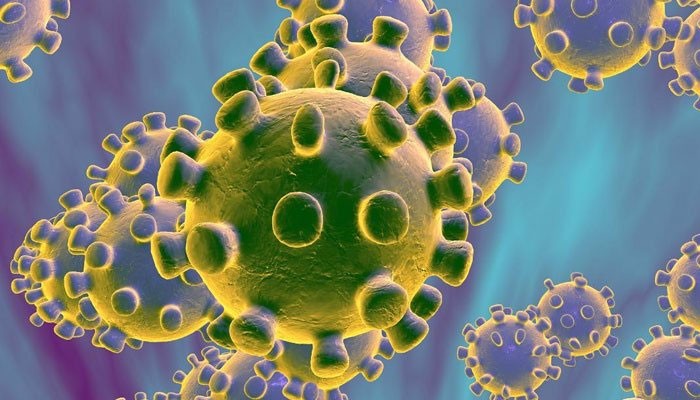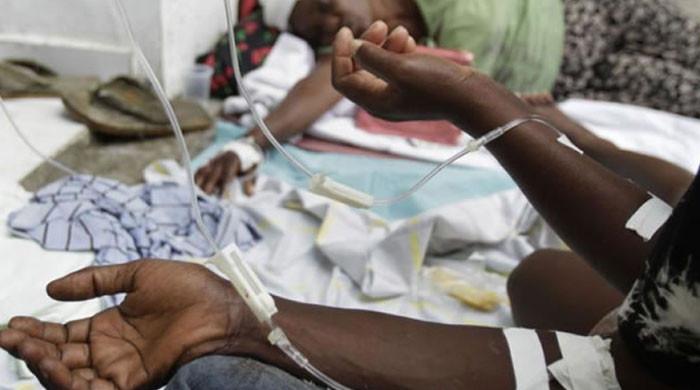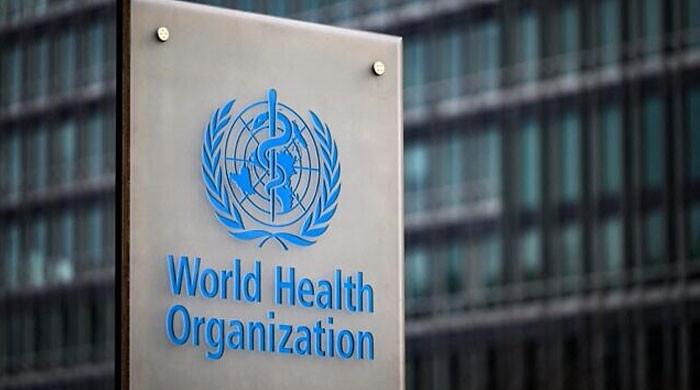Most infectious COVID-19 variant present in Pakistan: Aga Khan Hospital
Health experts say testing is very low in Pakistan due to which COVID-19 cases are not being detected
January 17, 2023

- XBB.1.5 is the most infectious variant of Omicron.
- Higher immunity cited behind low COVID-19 positivity ratio.
- Pakistan is among countries where over 95% of people are fully vaccinated.
KARACHI: The Aga Khan University Hospital (AKUH) has raised the alarm that the most infectious XBB.1.5 COVID subvariant has been detected in the country through genome sequencing.
It cited ‘very good immunity’ among the general population as well extremely low testing in the country behind the detection of a very small number of COVID-19 cases in the country.
“Yes, we have found the XBB.1.5 sub-variant of Omicron variant of SARS-CoV-2 (Coronavirus) through genome sequencing of the virus from an infected patient”, an expert associated with AKU told The News Monday.
The expert, who requested anonymity, said probably low testing was the reason that a very small number of COVID-19 cases were being reported from the country and opined that most of the people infected with the new sub-variant of Coronavirus were not getting themselves tested despite having upper respiratory tract infections.
The National Institute of Health (NIH) Islamabad Monday said COVID-19 positivity remained at 0.36% when only 11 people tested positive after 3,085 tests were conducted and added that only 14 people were in critical condition throughout the country.
Commenting on the presence of COVID-19 sub-variant in Pakistan and its impacts, renowned infectious diseases expert Dr Rana Jawad Asghar said XBB.1.5 is the most immunity-evading subvariant of the Omicron variant to date and it is infecting millions of people throughout the world including Pakistan.
“Fortunately, it is not causing a severe disease so most of the people who are contracting upper respiratory tract infections are not getting themselves tested. Most of the people who are getting tested on daily basis are actually travellers, who are a healthier segment of society so we are not getting the actual situation of COVID-19 in the country”, Dr. Rana Jawad Asghar added.
According to him, genome sequencing of the COVID-19 positive cases was very low in Pakistan as compared to the rest of the world, claiming that genome sequencing of only 0.5% of cases was being carried out, which was very low and non-systematic.
Several pulmonologists (chest specialists) and general practitioners confirmed to the publication that daily hundreds of people with upper respiratory tract infections were being reported from Karachi, saying despite having high-grade fever with flu-like conditions, these patients were not willing to get themselves tested for COVID-19 so they were being advised symptomatic treatment.
Pulmonologists and general practitioners report a large number of patients with upper respiratory tract infections.
"Both COVID-19 and H1N1 are spreading across the country rapidly. But as patients are not willing to get tested for COVID-19, they are being given symptomatic treatment as the majority of such patients don’t require hospitalization”, a senior pulmonologist associated with a leading tertiary-care health facility in Karachi said.
Renowned infectious diseases expert, Dr Faisal Mehmood believes that better immunity among the Pakistani population due to previous infections and vaccination were the main factor for the lesser spread of coronavirus although the most infectious sub-variant is circulating in the country.
"The Pakistani population has a high level of immunity due to previous infections and vaccinations. Pakistan is among the countries where over 95% of people are fully vaccinated while millions of people also have booster doses”, Dr. Mehmood who is an infectious diseases consultant at the AKUH told The News.
According to him, testing was very low due to which COVID-19 cases were not being detected but underlined that those contracting COVID-19 were also not getting severe disease due to stronger immunity.











